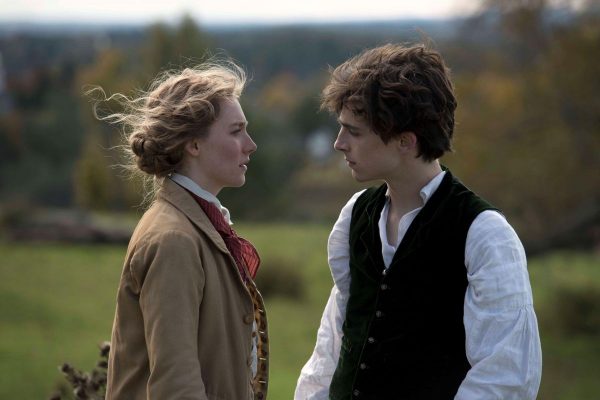So, your girlfriend has been pestering you to see the latest adaptation of Louisa May Alcott’s classic novel, Little Women. Lucky you, because not only is the star-studded, Greta Gerwig-directed film an instant critical darling (though we personally prefer the 1994 version starring Winona Ryder), but it’s also an ahead-of-its-time primer on loving and living with headstrong, independent women.
For the uninitiated, the story follows the March family in and around Civil War-era Concord, Massachusetts. Marmee is the matriarch, the father of the family is at war, and the couple’s four daughters are feisty females coming of age at a time when feminism wasn’t even a thing. Tomboy Jo wants to be a writer, matronly Meg is jonesing to get married, Beth is shy and sweet yet sickly, and precocious Amy is a budding artist. As these four young women find their way in the world, they forge relationships with men who are far more sensitive, supportive, and encouraging than you’d think they’d be given the time and place (and the patriarchy).
While Little Women in both literary and cinematic forms has been plagued by labels of “chick lit” or “chick flicks,” it is, in fact, a revolutionary look at gender norms, the fight for women’s equality, and the ways men can either help or hinder that cause. Rather than preachy, its message is nuanced, heartfelt, and relatable to any human, regardless of gender. In honor of the conversation-starting new film, we’ve unpacked 8 things men can learn about the “fairer sex” from Little Women.
Cover Photo: Columbia Pictures
Making a real man: 17 Chivalrous Acts We Want to Bring Back
Mandatory Movies: What To Watch When You Need To Man Up
Follow Mandatory on Facebook, Twitter, and Instagram.
Little Women For Men
-
Women’s ambition is equal to – if not more fervent – than men’s.
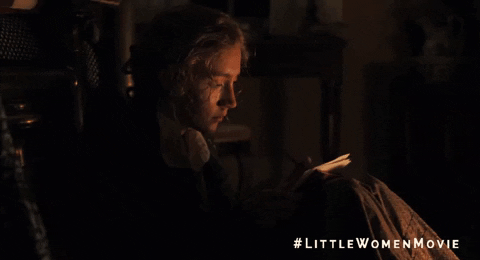
Women know what they want, and they will do anything to get it. Whether it’s Jo wanting to publish a book or today’s modern woman with designs on the C-suite, ambition extends to both women and men. The difference is that thanks to generations of oppression and patriarchal rule, women have to work that much harder to get what they want. Pro tip: stay out of their way.
-
Women don’t want it all.
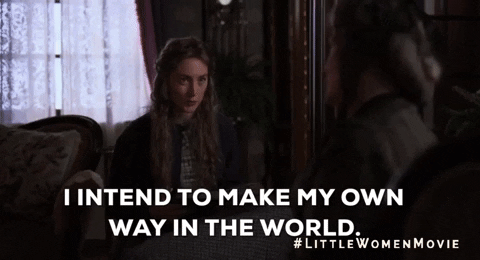
Or if they do, they acknowledge they can’t have it all, at least not all at once. Each of the March sisters sets her sights on unique goals: Jo just wants to write, Meg wants to marry and have children, Amy pursues art but is also on the lookout for love, and Beth wants to make music and be surrounded by family. None of these characters believes they can have, or attempts to obtain, a successful career and a passionate marriage and a litter of perfect children. They get two out of three, tops, as modern women are still discovering.
-
Women's bodies were meant to move.

Back in the day, it was thought that exercise was detrimental to women. Ladies were considered fragile, delicate, dainty, and meant to sit on a tuffet like the nursery rhyme character Miss Muffet. The March girls were rambunctious and enjoyed playing in the snow, ice skating, roughhousing, and otherwise exerting themselves until breathless. Jo even expresses an interest in going to war. Women today have fully embraced their physical prowess to an extent Alcott may never have imagined.
-
Women waste a lot of time on primping and fashion.
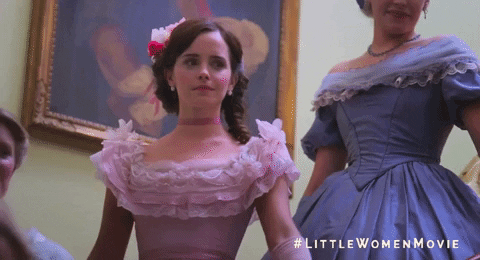
Some women enjoy grooming rituals and see their clothing choices as an expression of creativity. But for a lot of women, the whole appearance thing is a colossal waste of time. There are so many more important things to do in the world than look pretty. Jo cuts her hair to raise funds for her mother’s train ticket. She wears dresses with fireplace scorches on the butt. She couldn’t care less if her cheeks were rosy. This is real freedom – the freedom to come as you are and be valued not for your appearance but for your intellect.
-
Women want to know how men feel.
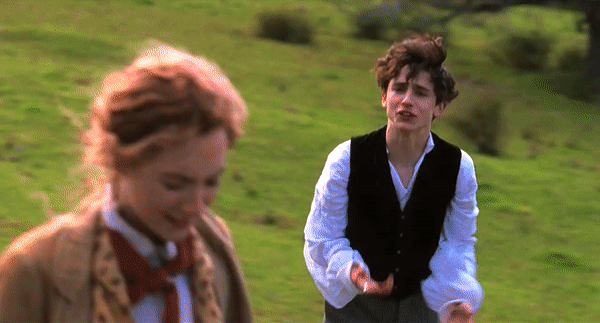
Emotions don’t discriminate based on gender, but society has strict rules about how they are expressed. Contrary to popular belief, women don’t want the strong and silent type of guy; they want to know not only what men think, but how they feel. In Little Women, Theodore "Laurie" Laurence isn’t shy about expressing his frustrations – that as a man, he must give up music in pursuit of a legal career; that he loves Jo despite her romantic disinterest – and while it’s painful for him to be vulnerable in this way, it makes him more likable. To emote is human, and to express those feelings is to find comfort and solidarity.
-
Women want real love, not sugar daddies.
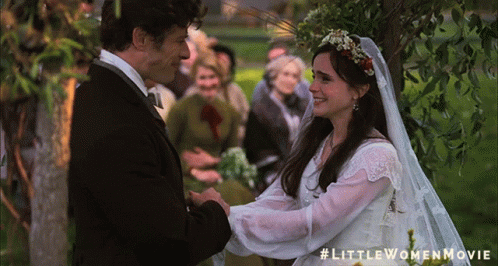
The March women listen to their hearts, and are not swayed by their suitors’ bank accounts (or lack thereof). Money is discussed as they contemplate marriage, but it isn’t a deal breaker. The only character who even comes close to gold-digging is Amy, but her interest in a rich man isn’t frivolous – it’s born of necessity, as someone who grew up poor and will likely not work for a living or make money off of her art because of societal restrictions. When given no other choice, yes, women have chosen well-to-do men to ensure their survival, but ultimately, no amount of money is worth being stuck in a miserable marriage.
-
Women want men around.

There’s a misguided notion that feminists desire a male-free existence. Nothing could be further from the truth. Women don’t want to replace men; they just want to be seen as equals by them and treated accordingly. In Little Women, the Marches love Laurie and want him in their lives as a friend, a playmate, a collaborator, a co-conspirator, and, in the case of Amy, as a love interest. The March women are not in competition with Laurie; their lives are enhanced because he is in it, and vice versa.
-
Women ask the same big questions men do.
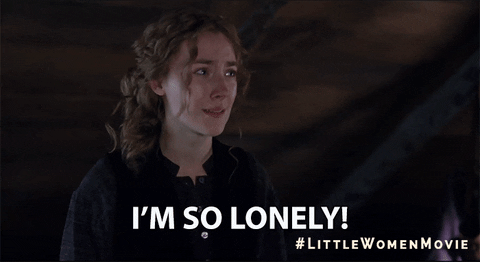
Is happiness possible? Am I normal? Will anyone ever love me? Can I trust my desire? Is this worth risking everything for? Women ask the same big questions as men, and they’ve been asking them since the beginning of time. (Hello, Eve in the Garden of Eden!) It may have once been thought that women were small-minded and focused only on the details of home and hearth, but as Little Women, and generations of grown-ass women, have proven, women are as contemplative, tormented, and hungry for meaning as men are.
